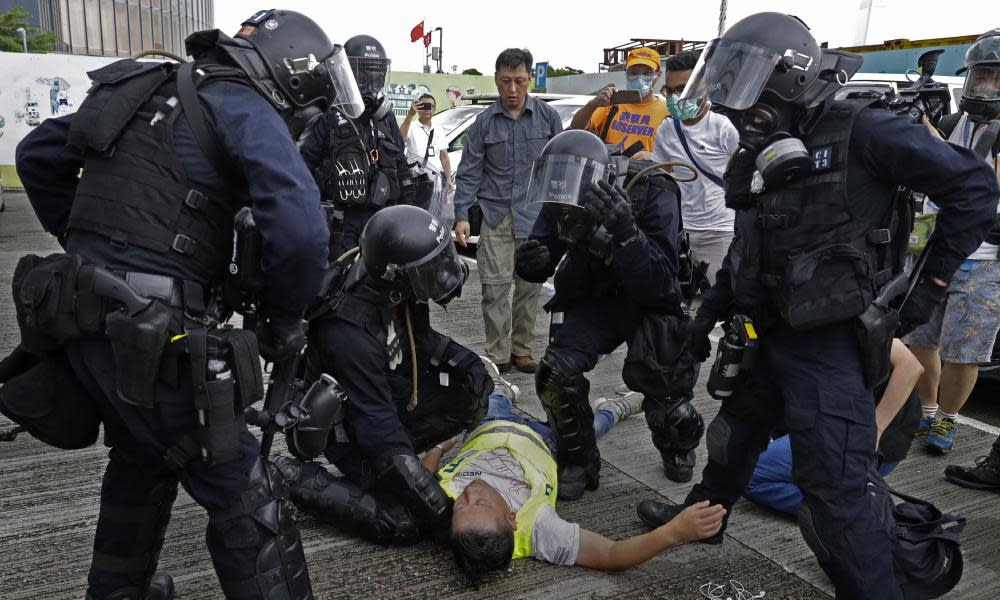UK halts sale of teargas to Hong Kong amid police brutality claims

The UK is suspending future sales of teargas and other crowd control equipment to Hong Kong until an independent investigation is held into allegations of police brutality during mass protests earlier this month.
The foreign secretary, Jeremy Hunt, who is campaigning to be the next prime minister, said no new export licences would be approved until concerns about human rights abuses were “thoroughly addressed”. His statement appeared to leave existing export licences untouched, including open licences not due to expire until 2020.
Related: ‘We have no other choice’: as China erodes democracy Hong Kong citizens prepare to leave
“We remain very concerned with the situation in Hong Kong and I raised those concerns with the chief executive [Carrie Lam, the semi-autonomous territory’s leader] on the 12th of June,” Hunt said. “I today urge the Hong Kong government to establish a robust independent investigation into the violent scenes that we saw.”
Hong Kong police used teargas and rubber bullets against protesters opposed to a proposed extradition law they said would allow China to target political enemies and try them in its opaque courts, where the conviction rate is as high as 99%. Some of the equipment used by police was sold by British firms.
Britain ruled Hong Kong from 1842 to 1997, when it handed the colony back to China.
A government source said: “As it stands all licences for any crowd control equipment have been exhausted, so there are no existing licences that would mean we could continue to sell crowd control equipment to Hong Kong.”
Amnesty International has said experts in policing and digital verification examined footage of 14 incidents of apparent police violence during a protest on 12 June in detail.
“The evidence of the unlawful use of force by police against peaceful protesters on 12 June is irrefutable. In the footage Amnesty has verified, police officers appear out of control, placing peaceful protesters who posed no threat in danger of serious injury,” said Man-kei Tam, the director of Amnesty International Hong Kong.
On 15 June Lam promised to indefinitely suspend efforts to pass the law.
Emily Thornberry, the shadow foreign secretary, said there was a need for a “root and branch” reform of the arms export regime. “If exported items from the UK are being used for internal repression of protest in any country, that is a clear breach of the rules on arms exports licences,” she said.
Ministers have allowed several licences permitting the exportation to Hong Kong of equipment including anti-riot shields, body armour, CS hand grenades and ammunition. These include two open licences, granted in 2015 and 2016, under which an unlimited quantity of material can be sold for five years. This would suggest that unless existing licences are revoked, a point not covered in the foreign secretary’s statement, exports can continue until 2020.

 Yahoo News
Yahoo News 
